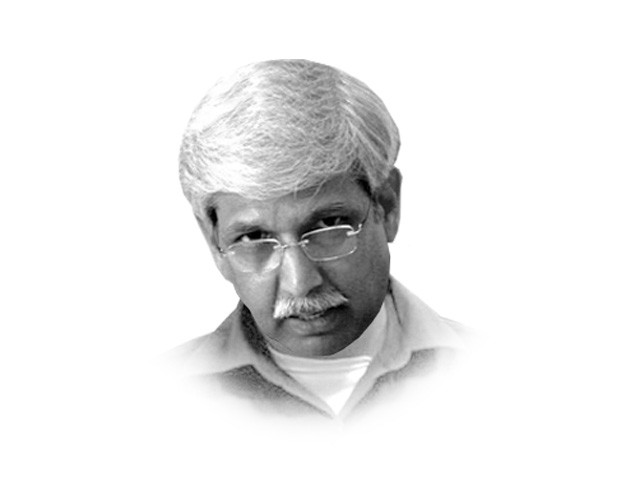Reading our books
Perhaps the Pakistani military’s main occupation should not be to win wars, but to avoid losing any.

It is usual to hear that Pakistan lost an opportunity to win Kashmir when India was busy fighting China in 1962. However, two things must be taken into account. For one, it would have been a magnificent diplomatic blunder to have jumped into another’s war; and two, those who were around then would remember that Pakistan was singing of friendship and brotherhood with the Indians at the time. We began to get our act together with the Chinese only two years later, possibly in preparation for our own adventure in 1965, assuming that a once beaten Indian is as good as a dead Indian. 1962 was also the time when the Americans provided Pakistan with the second major arms tranche and may in return have gotten an undertaking that Pakistan would not back-stab India.
1965 was indeed a strategic blunder. We ventured out to win Kashmir and failed. Someone thought India wzould not open up on the international border when ‘Operation Gibraltar’ was launched across the ceasefire line but she did. The person who said so was not a military man but he got the whole lot of them sucked into an unsustainable logic. The army had certainly not read their ‘Clausewitz’. Out to win Kashmir, we almost lost Lahore, except for the tactical brilliance of a few. More importantly, the 1965 war put us behind in economic terms. President Ayub had to relinquish power after sugar prices touched the unprecedented high of five rupees per kilo.
1971 was payback time for 1965. India had survived two scares, 1962 and 1965, without their ‘nut-cracker’ having materialised to their relief; the eastern front in 1965 was only an appendage to the main war in the west. Decrepit politics of the western wing provided sufficient reason and a ripe political environment in East Pakistan for India to put their plan into play. Pakistan all along had a strategy – for a change – and it called for ‘defending the east in the west’. Not only was it faulty to the core, it was blown to smithereens as the Indians, who had read their Clausewitz well, vanquished the Pakistanis in a smart politico-military manoeuver. No amount of tactical brilliance could correct the flaws in the basic strategic conception.
The two Afghan wars, 1979 and 2001, are different formulations entirely. While Pakistan and the Americans lay claim to their 1989 victory against the USSR in Afghanistan, both were back in Afghanistan in 2001 to bring closure to the incomplete earlier war. To-date, the effort is still on without a way out in sight. What this effort might unleash as residual effects on the region will test the strategic sense in the second iteration. Kargil was another story, unworthy of mention.
So yes, Ejaz is right. We need to read our books better. My worry: even Clausewitz may have become irrelevant in current times. There is a need to create our own formulations and read strategy as the final arbiter of peace rather than war. For that, politics will need to grow as well.
To return to the comely participant’s assertion: perhaps the Pakistani military’s main occupation should not be to win wars, but to avoid losing any. That shall make immense strategic sense.
Published in The Express Tribune, November 9th, 2010.














COMMENTS
Comments are moderated and generally will be posted if they are on-topic and not abusive.
For more information, please see our Comments FAQ